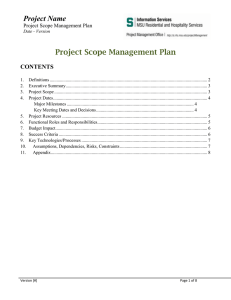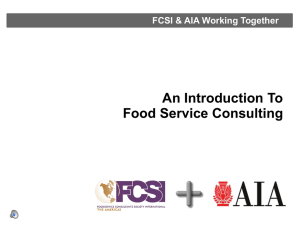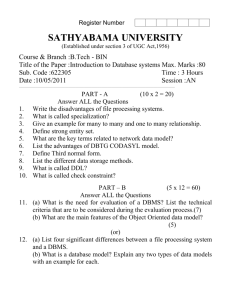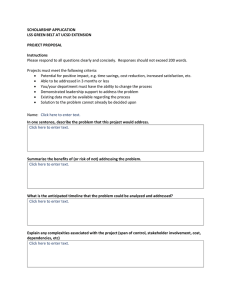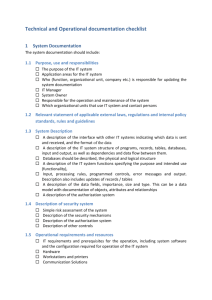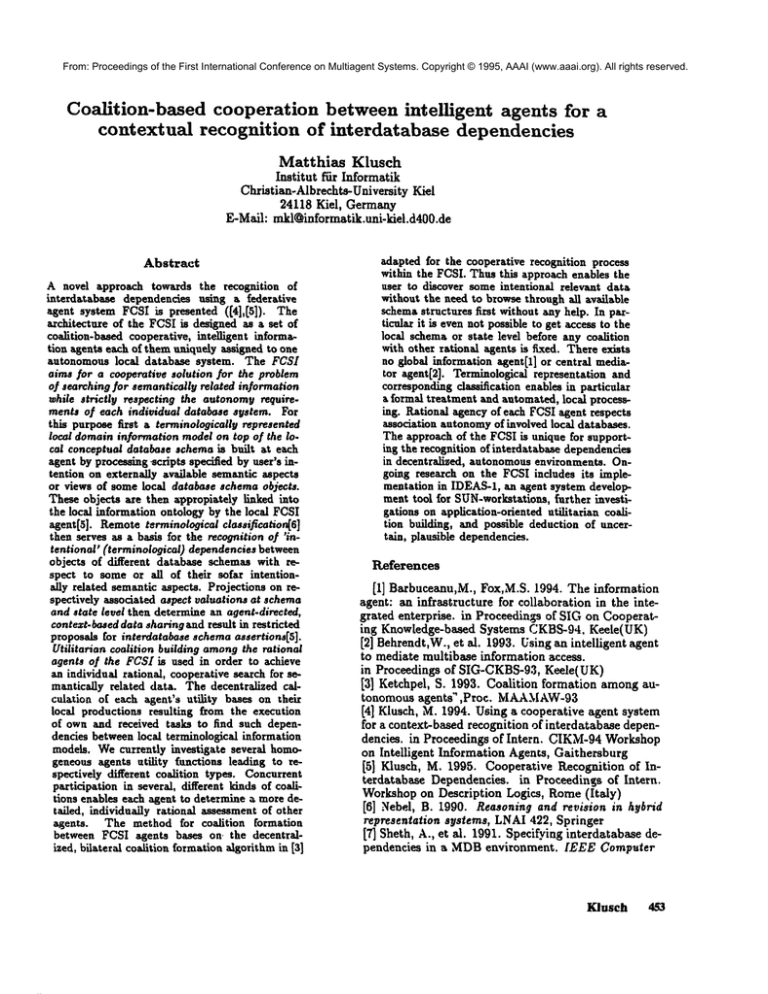
From: Proceedings of the First International Conference on Multiagent Systems. Copyright © 1995, AAAI (www.aaai.org). All rights reserved.
Coalition-based cooperation between intelligent
agents for a
contextual recognition of interdatabase dependencies
Matthias Klusch
Institut flit Informatik
Christian-Albrechts-University
Kiel
24118 Kiel, Germany
E-Mail: mkl@informatik.uni-kiel.d400.de
Abstract
A novel approach towards the recognition
of
intezdatabase dependencies using a federative
agent system FCSI is presented ([4],I5]).
The
architecture of the FCSI is designed as a set of
coalition-based cooperative, intelligent information agents each of them uniquely assigned to one
autonomous local database system. The FCSZ
aims for a cooperative solution/or the problem
o/searching for semantically related information
while strictly respecting the autonomy require.
ments of each individual database system. For
this purpose first a terminologically represented
local domain information model on top of the !o.
cal conceptual database schema is built at each
agent by processing .scripts specified by user’s intention on externally available semantic aspects
or views of some local database schema objects.
These objects are then appropi,Ltely linked into
the local information ontology by the local FCSI
agent[S]. Remote terminological clasaifieation[6]
then serves as a basis for the recognition o/ ’intentional’ (terminological) dependencies between
objects of different database schemas with respect to some or all of their sofar intentionedIy related semantic aspects. Projections on respectively associated aspect valuations at schema
and state level then determine an agent-directed,
context-based data sharing and result in restricted
proposals for interdatabase schema assertions[5].
Utilitarian coalition building amongthe rational
agents o] the FC$I is used in order to achieve
an individual rational, cooperative search for eemantical]y related data. The decentralized calculation of each agent’s utility bases on their
local productions resulting f~om the execution
of own and received tasks to find such dependencies between local terminological information
models. We currently investigate several homogeneous agents utility functions leading to respectively different coalition types. Concurrent
participation in several, different kinds of coalitions enables each agent to determine ~ more detailed, individually rational assessment of other
agents. The method for coalition
formation
between FCSI agents bases on the decentralized, bilateral coalition formation algorithm in [3]
adapted for the cooperative recognition process
within the FCSI. Thus this approach enables the
user to discover some intentional relevant data
without the need to browse through all available
schema structures first without any help. In particular it is even not possible to get access to the
local schema or state level before any coalition
with other rational agents is fixed. There exists
no global information agent[l] or central mediator agent[2]. Terminological representation and
corresponding classification enables in particular
a formal treatment and automated, loc~! processing. Rational agency of each FCSI agent respects
association autonomyof involved local databases.
The approach of the FCSI is unique for supporting the recognition of interdatabaee dependencies
in decentralized,
autonomous environments. Ongoing research on the FCSI includes its implementation in IDEAS-l, aa agent system development tool for SUN-workstations, further investigations on application-oriented utilitarian coalition building, and possible deduction of uncertain, plausible dependencies.
References
[I] Barbuceanu,M.,
Fox,M.S.1994. The information
agent:an infrastructure
for collaboration
in the integratedenterprise,
in Proceedings
of SIG on Cooperating Knowledge-basedSystems CKBS-94. Keele(UK)
[2] Behrendt,W.,
et al. 1993.Usingan intelligent
agent
to mediatemultibaseinformation
access.
in Proceedingsof SIG-CKBS-93,Keele(UK)
[3] Ketchpel,S. 1993.Coalitionformationamong autonomous agents",Proc. MAAMAW-93
[4] Klusch,M. 1994.Usinga cooperative
agentsystem
for a context-based
recognition
of interdatabase
dependencies,in Proceedingsof Intern.CIKM-94Workshop
on Intelligent
Information
Agents,Gaithersburg
[5] Klusch,M. 1995. CooperativeRecognitionof InterdatabaseDependencies.
in Proceedingsof Intern.
Workshopon DescriptionLogics,Rome (Italy)
[6] Nebel, B. 1990. Reasoning and revision in hybrid
representation
systems, LNAI 422, Springer
[7] Sheth, A., et al. 1991. Specifying interdatabase dependencies
in a MDBenvironment.
[EEE Computer
Klusch
453

